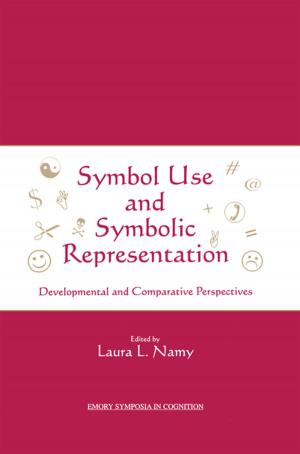| Author: | ISBN: | 9781351308380 | |
| Publisher: | Taylor and Francis | Publication: | April 17, 2018 |
| Imprint: | Routledge | Language: | English |
| Author: | |
| ISBN: | 9781351308380 |
| Publisher: | Taylor and Francis |
| Publication: | April 17, 2018 |
| Imprint: | Routledge |
| Language: | English |
Psychology is a field of many paradoxes. Since its earliest beginnings as a natural science, psychologists have been in search of their proper subject matter. Today they are in less agreement than ever. In this classic text, originally published as What Man Has Made of Man, Mortimer J. Adler goes to the root of the problem. He shows that psychology is simultaneously a particular social science and a branch of philosophical knowledge.
These two parts must be distinguished from, yet related to, each other if sound philosophical analysis is to replace bad "philosophizing," which scientific psychologists too often use to describe their research findings. Adler also examines the scientific contribution of psychoanalysis by distinguishing it from Freud's meta-psychology, which he shows to be an inadequate statement of the traditional or classical philosophical positions.
Adler believes that psychology is crucially important in modern culture. It is theoretically important because it is central to the errors of modern philosophy. It has practical significance because economic, moral, and political doctrines are determined by the view that man reviews his own nature. To understand the history of modern times, and to correct its normative deviations, we must, according to Adler, consider what man has made of man. This engaging analytical study will be a valuable tool for psychologists, psychoanalysts, philosophers, and sociologists.
Psychology is a field of many paradoxes. Since its earliest beginnings as a natural science, psychologists have been in search of their proper subject matter. Today they are in less agreement than ever. In this classic text, originally published as What Man Has Made of Man, Mortimer J. Adler goes to the root of the problem. He shows that psychology is simultaneously a particular social science and a branch of philosophical knowledge.
These two parts must be distinguished from, yet related to, each other if sound philosophical analysis is to replace bad "philosophizing," which scientific psychologists too often use to describe their research findings. Adler also examines the scientific contribution of psychoanalysis by distinguishing it from Freud's meta-psychology, which he shows to be an inadequate statement of the traditional or classical philosophical positions.
Adler believes that psychology is crucially important in modern culture. It is theoretically important because it is central to the errors of modern philosophy. It has practical significance because economic, moral, and political doctrines are determined by the view that man reviews his own nature. To understand the history of modern times, and to correct its normative deviations, we must, according to Adler, consider what man has made of man. This engaging analytical study will be a valuable tool for psychologists, psychoanalysts, philosophers, and sociologists.















